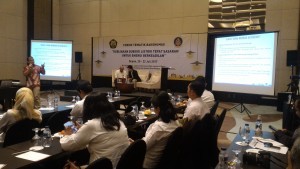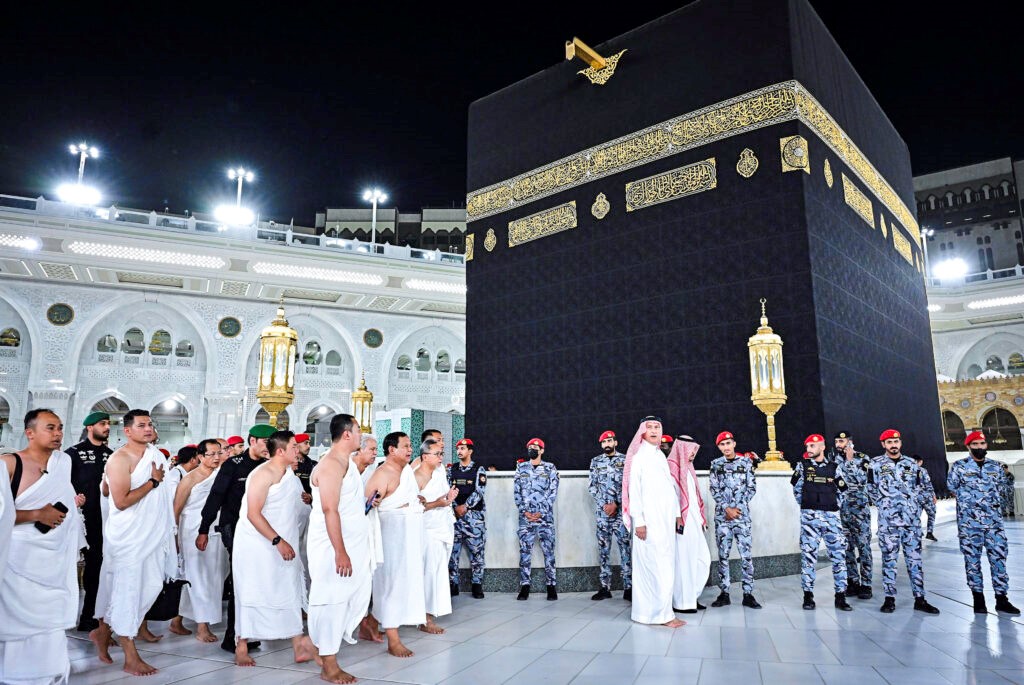Govt Allocated Rp51 Trillion for Subsidy Electricity This Year

a speaker from the Directorate General of Electricity delivers a presentation at a Thematic Forum of the Governmental Public Relations Coordination Board (Bakohumas) of the Ministry of Energy and Mineral Resources, in Depok, West Java, on Thursday (20/7)
Ministry of Energy and Mineral Resources in coordination with the Governmental Public Relations Coordination Board (Bakohumas) of Ministry of Communication and Informatics held a Thematic Forum adopting a theme Right Targeted Electricity Subsidy Policy For A Just Energy, at Margo Hotel, Depok, West Java, on 20 to 22 July 2017.
During the discussion session, Head of Subsidy and Electricity Tariff in the Energy and Mineral Resources Ministrys Directorate General of Electricity, David Fernando Silalahi said that in the meeting discussing the draft of Revised State Budget (RAPBN-P) of 2017 between the Energy and Mineral Resources Ministry and the House of Representatives (DPR), the number of 900-VA customers who are eligible for the subsidy reaches 2.44 million. Therefore, the number increases from 4.1 million to 6.54 million households, so the subsidy has to be increased by Rp7 trillion in 2017.
The subsidy increases by Rp7 trillion, so the total subsidy in 2017 reaches Rp51 trillion. The subsidy is also allocated to the Micro, Small and Medium Enterprises (MSMEs), food stalls, worship houses, orphanages, commuter train, and educational activities, David said.
In addressing complaints from right targeted electricity subsidy policy, David added, the people can submit their complaints related to the implementation of targeted electricity subsidy through the village office and sub-district office to be forwarded to the district and/or regency office and the complaints will be forwarded to the central post.
If the household that reports a complaint is listed in the integrated data, the report will be followed up immediately by the State-owned Electricity Company (PLN) and will be given a subsidy tariff. If the household that reports a complaint is not listed in the integrated data, the Integrated Data Management Work Team will verify the report, and check whether theyre categorized as underprivileged people or not, David added.
As of 19 July 2017, the total of complaints from right-targeted electricity subsidy policy is recorded at 72,217, 39,768 complaints are completed, while 32,449 are under verification process.
Five provinces with most reports are East Java with 17,259 reports, South Sulawesi with 11,304 reports, Central Java with 8,812 reports, West Sumatera with 7,578 reports, and Aceh with 7,057 reports, David said as concluding his presentation.
On the second session, Senior Communication Strategy Specialist of the National Team for the Acceleration of Poverty Alleviation (TNP2K), Rajeshanagara Sutedja said that currently the number of wealthy people receiving subsidy is higher.
Based on the data, the number of 450-VA customers who receive subsidy in 2016 reaches 22.8 million, while, in 2017, the number increases to 23.1 million. The number of 900-VA customers in 2016 reaches 22.3 million, and in 2017 it reaches 4.1 million. Therefore, 18.25 million households have stopped receiving subsidy since January 1, 2017, Rajesh added.
According to Rajesh, the inflation rate in June 2017 is recorded at 0.06 percent as the impact of right-targeted electricity subsidy policy.
We hope in the future there will be an integrated distribution of subsidy and non-cash social assistance, Rajesh said, adding that the measure is in line with the Presidents instruction.
In the meantime, Director General for Public Information and Communications of the Ministry of Communication and Informatics Rosarita Niken Widyastuti asserted that one strategy of the communication is preparation before the signing of a policy.
First is determining the context to the people. Formulating a communication is important in people conditioning, Niken said.
Regarding dissemination to the people, Niken said that it is the work of all ministries/institutions so that the topic of the dissemination can become popular within a certain period of time.
Several policies can be disseminated by all ministries/institutions, Niken concluded.
Also attending the event were Director General for Public Information and Communications of the Ministry of Communication and Informatics Rosarita Niken Widyastuti and the representatives of public relations offices of all ministries/institutions. (EN) (RA/EP/YM/Naster)








